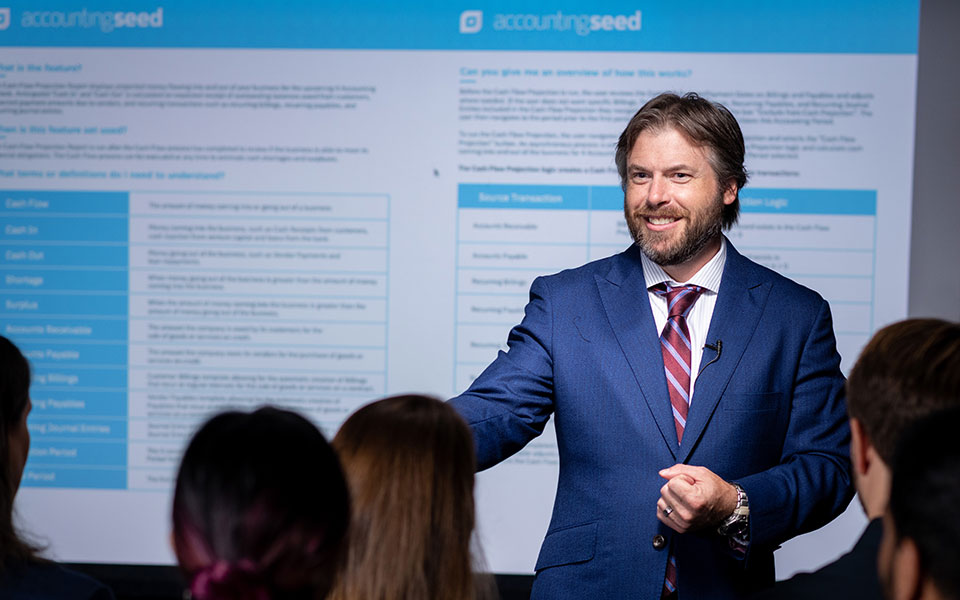Question the Box Itself: 5 Questions CEOs Need to Ask Following COVID-19

The COVID-19 pandemic has left a major, lasting impact on our world and how we operate. For many, this pandemic was hard, both personally and professionally. We have had to adjust and pivot. Those who didn’t suffered more, but those who were able to adapt their business model, not only survived, but thrived. They did it by being flexible, but odds are they also did it by being unconventional, or as I like to call it: iconoclastic.
We hear about thinking outside of the box. But in reality, many circumstances may prompt us to question the proverbial box itself. And we should. The pandemic has made us not only think more strategically but also question how and why things are done the way they are. True, sustainable success builds upon past trends and discoveries, it doesn’t just stick with it. To uncover the adaptability CEOs need to recover from COVID-19 and beyond, we have to think like iconoclasts and ask critical questions to determine our own paths to success.
What is an Iconoclast?
First, what is an iconoclast and this Iconoclast Formula I keep mentioning? In my book, Iconoclasm: A Survival Guide in the Post-Pandemic Economy, I describe iconoclasts as individuals who challenge the prescribed way of doing things, design a better way, and execute a plan for change. Challenge. Design. Execute. This is the mindset of modern iconoclasm.
Maybe you’ve done these things before. But what defines an iconoclast is constant improvement and positioning oneself to adjust to new challenges with ease. Solving an issue might not always be enough. Issues evolve and new problems arise or become more complex. What I’ve often found is that the prescribed method might be part of the problem. Iconoclasts recognize this and strive to create better, more innovative solutions. How do we do this? We start by asking questions.
The Power of Practical Questions
In a world of cloud computing and high-speed internet, we have more options and access to knowledge than ever before. But we seem to do a lot of things simply because ‘that’s how it’s done.’ Why? It’s a simple question that can open your organization to more opportunities than you may realize. In times like COVID-19, challenging old methods and mindset is essential for pivoting to a better strategic position.
COVID-19 was a major testing ground for critical thinking because we had to question how we could all adjust to a pandemic formed market. For organizations to survive, even thrive, businesses had to be iconoclasts. Older methods around exclusive office work, products and product development, traditional services, all of these had to adapt to overcome pandemic shutdowns. What every CEO should take to heart is that adaptability and flexibility are virtues far more beneficial than the proven method. The proven, prescribed method, doesn’t always work for everyone. We must constantly ask, is there a better way? Being an iconoclast starts by challenging the norm and pursuing better routes for success. These core questions you should be asking yourself.
Why are we doing this?
Always important to ask whether it’s business as usual or you need to readjust your business model for a COVID-19 economy. Every business initiative is an effort of time and money. If you’re doing something that isn’t paying off, then is it worth it? Are you doing something because it has value, or because it’s just the norm? The chief answer to this initial question should have the customer at the forefront. Are your goals and initiatives effectively attracting and maintaining the customer base, or is your work process not conducive to shifting customer behaviors?
Is this working?
We do a lot of things according to standard practices. Things like working in an office, or using a certain type of technology over another can be seen as examples. These are just the right ways… right? Not necessarily. True innovation isn’t just doing what’s been proven successful, but building onto them. I’ve found that some traditional best practices lose their effectiveness in the face of new technology and change. It is alright, even necessary to question whether the commonly held belief or best practice is valid. Odds are, as times change and based on your individual circumstances, they might not.
For example, remote work is not only appealing to staff and cost-effective but highly effective in COVID-19 and beyond. One survey found that people working from home in 2020 were 47% more productive. Whether you work in an office or on a couch at home, success depends on your staff, the technology you use to empower them, and the processes you engineer. Focus on these factors and your team can pivot however you need.
Do we need a change?
Adaptability is an essential virtue for all businesses. This might mean diverging from or altering original plans or typical processes to address rising trends. Companies like Spotify achieved growth despite COVID-19 lockdowns because they analyzed competitors and observed shifting customer behaviors to develop new original content. They changed their approach because it was better to serve the customer. You may need to question what you’re doing and how you’re going about it to improve customer relations or workflows.
Is there a better way?
In my own experience, accounting was originally performed on standalone applications or on Enterprise Resource Planning (ERP) platforms. As an accountant and IT specialist, I encountered a lot of recurring struggles clients had with all these systems though. These solutions were difficult and expensive to integrate to and customize. I questioned whether there was a better way to perform digital accounting besides these two options. In questioning the technologies and attitudes on current accounting technology, I developed my own solution. I created Accounting Seed, an accounting platform, with the mindset and flexibility of a Customer Relationship Management (CRM) to provide more options to the user.
Questioning whether there was a more effective method to do accounting was a breakthrough. But more than that, it was looking at objective ways to achieve this that informed how to solve customer problems. If the ERP was too rigid and customers were struggling, designing with a CRM mindset offered increased flexibility and control to overcome the problem.
How do I construct a better way?
Having an alternative, even contrary idea is one thing. You must test it and measure its effectiveness to determine if this is worth keeping. To do this you need to plan how you will execute your approach, designing processes and defining things like milestones to ensure it is as effective as it can be. You’ll want to define the tools, steps, and methods that are necessary for your new approach to succeed.
This may require adjustment as you go, that’s okay. Adapt your plan as needed and incorporate your team’s feedback to course correct. If your idea doesn’t pan out, it doesn’t mean that the prescribed way is the only way after all. It means it’s time to reassess, take what you’ve learned, and keep improving.
These are just 5 questions you can use to objectively examine how you’re operating and where you’re heading.
Challenge. Design. Execute
COVID-19 revealed weaknesses in oversight and planning, while solidifying the effectiveness of certain tools, like cloud computing. But all of these depend on individual needs and adaptability. To succeed in anything, it isn’t so much about following steps or the established path. But rather about questioning whether you can carve a better path for your organization and customers. It is essential to question whether solutions are effective to your end goals, and if not, how to adjust. True success is about following the appropriate steps that suit you the best.
Therefore, it’s okay to challenge older ideas and try new things, even necessary. In business, the most important thing you can do is understand the perspectives and needs of your customers, and the trends determining the market. These are how you should base your strategies, not standard practices that don’t seem applicable. Instead, question how change can open up ways for you to improve your circumstances and adapt.
We cannot be afraid to question the situation and propose alternative solutions. Especially, when we can create better avenues to success. Don’t be afraid to challenge the norm.
Commentary by Tony Zorc. Here’s what you’ve missed?
Best Countries For Cultural Heritage Influence.
Best Countries For Raising Kids.
Best Countries to Headquarter Multinational Corporations (MNCs).
Best Countries For Retirement.
Best Countries For International Students.
Add CEOWORLD magazine to your Google News feed.
Follow CEOWORLD magazine headlines on: Google News, LinkedIn, Twitter, and Facebook.
Copyright 2024 The CEOWORLD magazine. All rights reserved. This material (and any extract from it) must not be copied, redistributed or placed on any website, without CEOWORLD magazine' prior written consent. For media queries, please contact: info@ceoworld.biz








